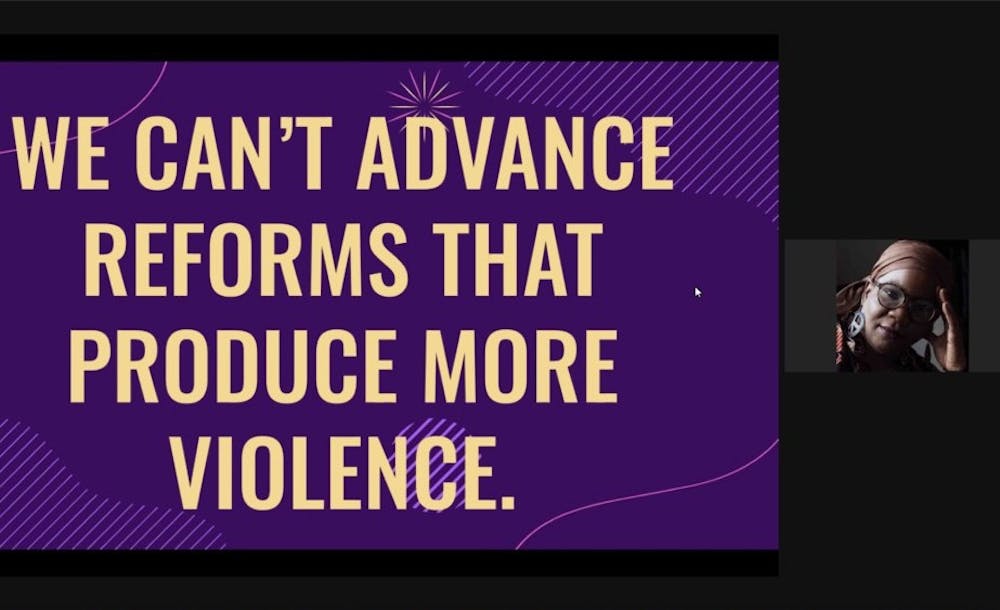
Community organizer and abolitionist Mariame Kaba emphasized the importance of mutual aid in getting rid of the prison-industrial complex at Beyond Arrests: Re-Thinking Systematic Oppression's second annual conference.
Kaba is known for work focused on dismantling the overlapping interests of government and industry that use policing, imprisonment, and surveillance to solve various types of problems. She delivered the keynote address to more than 100 Penn community members on Feb. 20 as one of four parts of the conference, titled The Path to Abolition: Envisioning the End of the Carceral State.
Kaba said mutual aid, transformative justice, and universal accountability in activist movements are crucial to her goal of replacing imprisonment and policing with lasting alternatives. She added that it is important to maintain reciprocal relationships for activists and abolitionists — which includes sustaining relationships with people who are incarcerated, their families, and their communities through mutual aid.
“[Mutual aid] is premised on solidarity and not charity, and that's really important. It rejects saviorism. It rejects hierarchy and authoritarianism," Kaba said. "It marries community service with political education and political activism that's actually focused on challenging power and oppressive systems.”
Kaba shared nine solidarity commitments with participants to engage with people who are incarcerated in 2021, including steps such as writing to people who are incarcerated, donating to bail funds, and learning about incarceration and criminalization.
“Transformative justice necessitates building trusting and deeply caring relationships because these are the foundation of safer communities," Kaba said. "It insists that we develop the skills needed to prevent, intervene in, and transform harm.”
BARS representatives closed the event by suggesting participants donate to West Philadelphia activist Anthony Smith, who is awaiting trial for arson charges after he was accused of burning a Philadelphia police car at a racial injustice protest. Organizers asked able participants to donate to his Paypal or Cash App to help pay for a lawyer and expert witness for his trial.
BARS conference committee representative and College junior Johanna Doherty, said this year's conference resonated with racial injustice protests that took place around the country following the police killing of George Floyd.
“Throughout the summer, [there was] new interest for people in abolition and defunding the police, so I think it’s just a really relevant topic right now, and it's really exciting to be able to spread a message that I’ve been able to get involved in for the past couple of years, and [getting] new blood in that idea was really exciting,” Doherty said.
College first year Megha Neelapu said she had been following Kaba’s movement for several years and emphasized Kaba's discussion of the importance of mutual aid.
“So much about abolition is us building relationships and taking care of each other” Neelapu said. “It’s important for Penn students to realize we are all part of this community now, and what’s important fundamentally is taking care of each other and staying safe for Penn and West [Philadelphia].”
The Daily Pennsylvanian is an independent, student-run newspaper. Please consider making a donation to support the coverage that shapes the University. Your generosity ensures a future of strong journalism at Penn.
Donate



